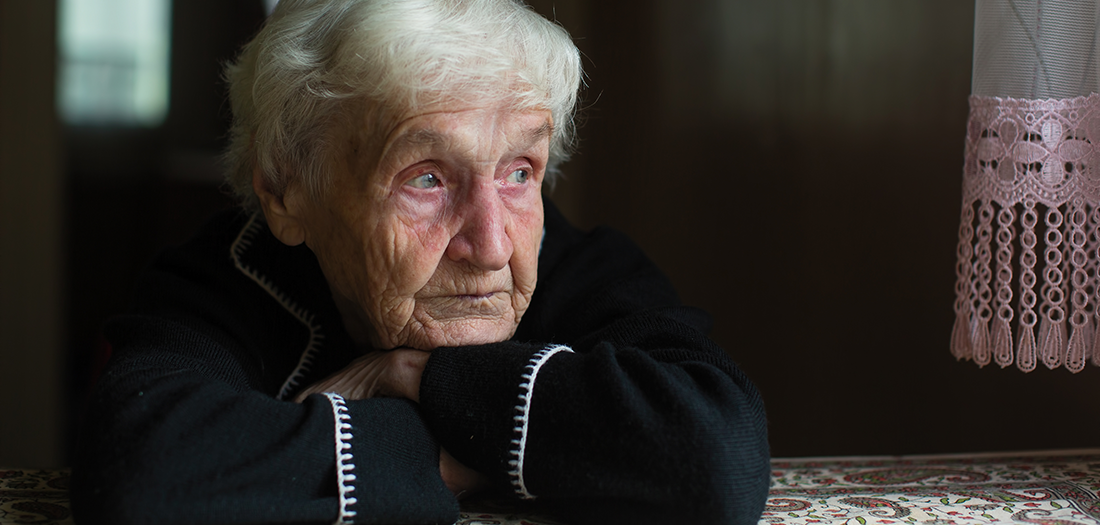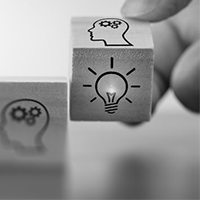 Contact
About Us
Articles
Home
Contact
About Us
Articles
Home

As people age, many of them experience a decrease in their sense of value and worth. The decrease happens for a variety of reasons and causes unnecessary distress and anxiety in mature adults. Whether it is the anxiety a woman feels when she counts her wrinkles or the frustration a man feels when he can’t do things that were once easy, the diminished sense of value and worth is avoidable.
In this article, three concepts are discussed. The first concept is a psychological model of multiple selves. Most people think they’re one person. For example, I’m Jeanine. But Jeanine isn’t just one person, and neither are you. Jeanine is a wife, daughter, mother, author, researcher, neighbor, friend and many other things. When we are in different situations, we play different roles, even if our actions are authentic. When I have fun with my daughters, it is a different kind of fun than I enjoy with my husband.
Everyone has multiple selves. This is important as it relates to the second concept which is competing against yourself instead of against other people. When you choose to compete against yourself, your potential for growth expands.
Whether people have value and worth is a metaphysical question. However, grounding the discussion in metaphysics takes us into philosophical, metaphysical and religious beliefs. Rather than get tied up in this concept that could keep philosophers in a state of contemplation for months, the bottom line is that believing you have value and worth is less stressful than believing you don’t or that you have to prove your value and worth. Chronic stress is unhealthy, so it is logical to adopt the less stressful perspective. Accepting that your life has value and worth is not something you have to prove to anyone, not even yourself.
Many people attempt to figure out their value and worth by comparing themselves to others and working to be better than other people. Or, in some cases, they demean someone else’s value in order to elevate their own. But comparing yourself to someone else doesn’t answer these questions: Does my life have value? Is my existence justified? Am I worthy of a good life?
Comparing yourself to someone else can be similar to taking a snapshot of them on their best day and you on an average or bad day and deciding you don’t stack up. Or, looking at someone who has a similar job or house and deciding that you’re equals based on your current worth. But one of you might have had to fight their way out of poverty to get where they are while the other one inherited everything they have. Snapshots don’t tell us anything about someone’s value and worth.
The healthiest way to approach value and worth is to simply decide that each person has value and worth because inherent value and worth are intrinsic aspects of life. This approach helps you avoid making judgments about others and yourself.
Life transitions can cause us to question our value and worth. Some transitions are more difficult than others. Retirement is a difficult time for individuals who based their sense of value and worth on what they accomplished in their career. Another transition that makes some people question their value and worth is the loss of physical abilities.
While it is not uncommon for these transitions to cause mental angst, it is not difficult to cure. Despite that, some people stay in painful emotional states for extended periods. When someone feels a diminished sense of value and worth, they can change their definition of what gives them and their life value and worth in order to feel better.
Research published in the Personality and Social Psychology Review demonstrates that everyone has multiple selves. Who we are in any given moment depends on the context of the experience.
There is the self we are perceiving our self as in this moment.
We can think our past selves such as the child we once were or the gangly teenager we were in high school. In each scenario, your thoughts, perspectives, and experiences are unique. While each of our selves influences our other selves, who we are when we are in each role is somewhat different. The most confident executive can be as nervous as a teenager when it comes to doing something new.
Our possible selves play a role in motivation. Waclaw Bak, a researcher at the Institute of Psychology says:
“Firstly, they [our various selves] constitute the context for evaluating the actual self and thus they are an important element of self-evaluation processes. The subjective evaluation of the current state of the self must take into account some point of reference – a certain potential state that is a criterion in evaluating the current state. Secondly, possible selves play an important role in motivational processes. They determine the direction of change and motivate the person to take action in order to realize the hoped-for visions of the self and to prevent the realization of the feared ones. … Possible selves are imagined future states of the self, and ideas of the future are not always positive. Thus, the concept of possible selves covers references not only to states that are positively evaluated and anticipated with hope but also to those possibilities that one would like to avoid, perceiving them as potentially threatening. The former are termed hoped-for selves and the latter – feared selves.”
We can be motivated by what we want to achieve and by what we don’t want in our future. In this example, some of Sarah’s selves and their characteristics are shown in the graphic.
Our visions of our future self calls us toward the future. Our judgments about our past self may shape the visions of our future. It is not what we did in the past, but our view of how we did that influences what we believe we can or can’t do in the future.
William James, the father of modern psychology said:
Properly speaking, a man has as many social selves as there are individuals who recognize him and carry an image of him in their head.
You can draw value and worth from any of your selves. And, you can change the self or selves you use to give your life meaning and worth.
The most important thing to consider about our multiple selves is that we define each of ourselves. Defining them can be done by default or with deliberate intention. For example, some who starts a business and fails to make a go of it might define themselves as a failure. Or, they could decide to define themselves as experienced. It is easy to see that when a young child is learning to walk, they learn each time they lose their balance and that eventually, they learn to be steady on their feet. It is more difficult to see that with something like a failed business, but it is just as true then as it is with the toddler.
When people accept limiting definitions of self, they can give up on themselves. Have you defined some of your past selves in negative ways when you could choose a more positive definition?
Have you noticed that when you set a goal, you feel more energy and when you accomplish the goal, your energy level subsides, especially if you’ve put in a Herculean effort? The more energy you need to accomplish the goal, the more energy seems to pour through you. But once you reach your goal, the burst of energy dissipates, especially if the goal was challenging for you.
Many people set goals to beat other people, but that leads to lower achievements, especially for women. Let’s look at examples of competing with self instead of competing against someone else.
Shiloh didn’t consider herself competitive until she was in her 30s. She saw people comparing themselves to others’ achievements and didn’t relate. She didn’t feel competitive with her peers. In college, other students had dropped classes when the professor refused to toss her grade out of the curve.
Then, late one night, a co-worker came into her office and asked her to not work as hard because she was making him look bad. She hadn’t thought about how others looked in comparison to herself. She was merely focused on doing her best at whatever she did.
Shiloh found his request disturbing. She had never considered him competition. She saw the two of them as teammates, working to achieve their employers’ goals. The experience made her reflect on how she decided what to do. It was then that she realized that she continually set goals to do better than she had in the past. She was competitive! She competed with her prior self.
Then it dawned on her, if she had competed with her teammate, her goal would have been to do a better job than he did. Instead, by competing against herself, the bar continually moved up, which led to greater growth and achievement. Researchers at the University of Pennsylvania found that women perform 12% better when they compete against themselves than they do when they compete against someone else.
Internalized competition can also be a richer experience. For example, when Wendy was widowed, she was uncomfortable going to a restaurant and dining alone. But she wanted to travel, her children lived about a day away, in opposite directions. She felt she needed to get comfortable dining in a restaurant alone. An observer wouldn’t have noticed much difference between her first time dining alone and the 12th time, but her inner experience was very different.
The first time she dined alone, she felt anxious. She felt as if everyone was looking at her and thinking about her. That wasn’t what she wanted, so she kept making herself go out to eat. When she saw other people also dining alone, she paid attention to her thoughts about them and realized she’d always seen solo diners and never given them much thought. She was able to soothe her anxiety about dining along. By the 12th time she dined alone, she was able to enjoy the experience.
If Wendy had been competing against other people, she wouldn’t have paid as much attention to how she felt because she wouldn’t have had that information about their experiences.
If you use your physical abilities as the basis of your value and worth, you may feel as if your value and worth decline if you become disabled or experience decline in your physical abilities.
This is where the multiple selves come into play. If your physical abilities are declining, consider shifting your focus to other aspects of yourself. Parents who based their value and worth on being a great parent might feel adrift when their children left the nest. Spouses who base their value and worth on being a great spouse can have adjustment difficulties when their spouse passes away or they get divorced.
Being flexible about which version of yourself you use to motivate yourself to continue growing can help you remain interested in life and looking forward to your future.
Even if you shift your primary competitions with your prior self to a new version of yourself, you don’t have to give up on other ones. A divorce doesn’t mean you’ll never be a great companion. Declining physical capabilities doesn’t mean you can’t achieve physical feats.
The key is to choose areas where you can grow that matter to you. Compete with what you achieved yesterday, not what someone else can do.
How do you define your various selves? Are you choosing life affirming definitions or life limiting definitions? Do you see the value of your life? If not, can you find other perspectives that reflect your intrinsic value and worth?
Even after someone loses many of their physical abilities, their accumulated experiences and wisdom have value. That value contributes to their value as a person and their ability to be of value to others.
Alliance America is an insurance and financial services company. Our financial planners and retirement income certified professionals can assist you in maximizing your retirement resources and help you to achieve your future goals. We have access to an array of products and services, all focused on helping you enjoy the retirement lifestyle you want and deserve. You can request a no-cost, no-obligation consultation by calling (833) 219-6884 today.


